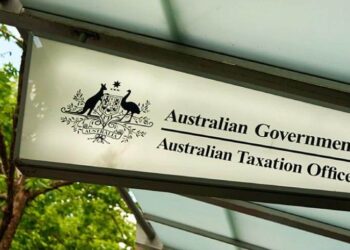Treasury’s estimates do not include the savings associated with Australians coming off the age pension as they use their superannuation for retirement.
As superannuation increasingly looks to be a target of the government’s national tax reform, AMP SMSF’s head of policy, technical and educational services Peter Burgess told SMSF Adviser it’s necessary to have a more holistic approach to calculating superannuation tax concessions.
“It’s never been more important than now, because we’ve got the discussion paper coming out on the tax white paper very shortly and we expect there’s going to be a lot of discussion around these concessions, and also how these concessions are allocated across the different income ranges,” Mr Burgess said.
“If we’re going to move this debate forward, we’re going to need a lot more holistic and sophisticated approach to valuing these tax concessions, with a model that does factor in the offset in reductions in the age pension costs.”
These comments follow the Financial System Inquiry’s call for taxation arrangements within super to be reformed to satisfy long-term fiscal objectives.
While the FSI’s final report did not make any specific recommendations for changes to the taxation of superannuation, it stated that superannuation tax concessions “are not well targeted” at the objectives of the superannuation system.
“Individuals with very large superannuation balances are able to benefit from tax concessions on funds that are likely to be used for purposes other than providing retirement income, such as tax-effective wealth management and estate planning,” the report stated.
“As a result, the majority of tax concessions accrue to the top 20 per cent of income earners. These tax concessions are unlikely to reduce future age pension expenditure significantly.”
In addition, industry bodies such as Taxpayers Australia have long predicted changes to superannuation tax concessions.
Speaking previously to SMSF Adviser, Reece Agland, superannuation products and services manager at Taxpayers Australia, said the “excessively generous” deductions in superannuation available to the wealthy are unsustainable and need to be considered in any genuine tax reform process.
“The government’s promised review of the tax system is the most likely conduit for any changes,” Mr Agland said.
“Although in order to maintain its pre-election promises (to not make adverse changes to superannuation in its first term) the government will most likely put off implementation of any changes until after the next election.”



Envy, of course, is a serious sin and one which is destroying this country as I once remarked to a Treasurer’s private secretary seeking my Senator’s support for a luxury car tax hike on the basis it would exempt the workers but hit the higher income earners.
But Treasury and journalists keep appealing to the worst instincts in people instead of being detached and truly rational.
All this sounds fine but at what level of income or assets are you classified as “very wealthy” The last lot of political masters defined anyone earning more than $85K/year or with assets of more than $1 mil as very wealthy and worthy of an additional super tax. It was unfair, they said, that people could accumulate $1 mil or more. Anyone working and saving for 50 years before retirement should have more than this sum, so if the previous mooted levels were used all older folks stand a good chance of being targetted. The politics of envy and government greed will probably define the outcome.
But the super tax arrangements are to be justified by tax logic not on the basis of a bribe to keep people off the age pension.
If all super tax concessions were abolished tomorrow there would be a massive tax bias in favour of unfunded schemes such as the traditional half pay of military servants of the Crown.
[quote name=”John”]Oh come off it! it would be far cheaper for we Australians to pay all these “Tax Avoiders” the full Age Pension than to allow them to avoid paying tax which in some cases equates to over ten times the age pension that[/quote]they would receive in retirement.
Oh come off it! it would be far cheaper for we Australians to pay all these “Tax Avoiders” the full Age Pension than to allow them to avoid paying tax which in some cases equates to over ten times the age pension.
Precisely. The concept depends on your ideal tax system. So it is a negative tax expenditure not to allow lifetime income averaging. The spouse rebate was shown as tax expenditure but not two tax free thresholds for a couple with 2 incomes. Once imputation was adopted it should be seen as a negative tax expenditure (over-taxation) that franking credits do not flow though discretionary trusts.
If a top tax payer is getting a “concession” by contributing super and reducing their tax rate from 49% currently to 15% then I presume a low income earner with income under $18,200 is getting a “concession” of $8,918 as by the same logic the magnanimous government could choose to tax them at 49% instead of 0% but graciously chooses not too.
Yet strangely this “logic” only gets applied to top tax bracket people. I wonder why that is?
I drafted the notes to the first Treasury Tax Expenditures Statement back around 1982. Nobody seems to have read them. If they did they would realize that the items are prepared on assumptions as to a correct tax treatment and no behavioural changes. Both assumptions are wrong.
The correct tax treatment for super is forward income averaging. That would require unlimited deductions, tax free accumulation and taxable life pensions for a couple and dependent children on the way out.
That would produce a far lower tax expenditures figure.
I sat in on Professor Stanley Surrey’s lectures at Harvard Law School and have his original book on tax expenditures. His theory was rather exploded by Professor Andrews, hence my cautious notes back in the first Treasury statement.